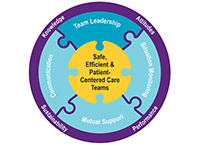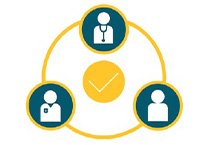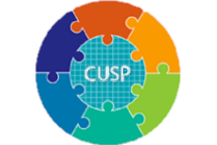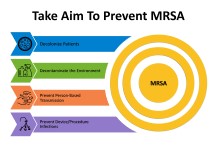National Healthcare Quality and Disparities Report
Latest available findings on quality of and access to health care
Data & Analytics
- Data Infographics
- Data Visualizations
- Data Tools
- Data Innovations
- All-Payer Claims Database
- Consumer Assessment of Healthcare Providers and Systems (CAHPS®) Program
- Healthcare Cost and Utilization Project (HCUP)
- Medical Expenditure Panel Survey (MEPS)
- National Healthcare Quality and Disparities Report Data Tools
- Network of Patient Safety Databases
- AHRQ Quality Indicator Tools for Data Analytics
- Surveys on Patient Safety Culture
- United States Health Information Knowledgebase (USHIK)
- Data Sources Available from AHRQ
Tools
The Agency for Healthcare Research and Quality (AHRQ) offers practical, research-based tools and other resources to help a variety of health care organizations, providers, and others make care safer in all health care settings.
Re-Engineered Discharge (RED) Toolkit
This toolkit assists hospitals, including those that serve diverse populations, improve their hospital discharge process to reduce avoidable readmissions and posthospital emergency department visits. A guide for patients and families, available in English and Spanish, was developed as part of the toolkit.
Date Published: Setting of Care: Hospital, Long-term Care
SDOH & Practice Improvement
Learn about tools to help healthcare organizations address social determinants of health and patients’ social needs.
Date Published: Setting of Care: Ambulatory Care, Long-term Care
Team Strategies and Tools To Enhance Performance and Patient Safety (TeamSTEPPS)
TeamSTEPPS is a customizable program to improve patient safety by training clinicians in teamwork and communication skills. The TeamSTEPPS curriculum 3.0 materials include six Welcome Guides for different audiences, a pocket guide of tools and concepts for trainees, and various training videos to illustrate TeamSTEPPS tools and concepts. The TeamSTEPPS 3.0 curriculum is composed of Introduction, four Modules (Communication, Team Leadership, Situation Monitoring, and Mutual Support) and Implementation of TeamSTEPPS.
Date Published: Setting of Care: Ambulatory Care, Hospital, Long-term Care, Outpatient Surgery
Ten Attributes of Health Literate Healthcare Organizations
Find AHRQ tools that can assist healthcare systems address health literacy and each of 10 attributes of health literate healthcare organizations.
Date Published: Setting of Care: Ambulatory Care, Hospital, Long-term Care
The SHARE Approach
The SHARE Approach is a clinician-led shared decision-making model with five essential elements for meaningful dialogue with patients exploring benefits, harms, and risks of options and what matters most to them.
Date Published: Setting of Care: Ambulatory Care, Outpatient Surgery
Toolkit for Decolonization of non-ICU Patients With Devices
This toolkit can help hospital infection prevention programs implement a decolonization protocol that was found to reduce bloodstream infections by roughly 30 percent in adult inpatients who were not in intensive care units and who had specific medical devices. It includes implementation instructions, demonstration videos, and customizable tools.
Date Published: Setting of Care: Hospital
Toolkit for Engaging Patients To Improve Diagnostic Safety
This toolkit is designed to promote enhanced communication and information sharing within the patient-provider encounter so patients, families, and health professionals can work together as partners to improve diagnostic safety.
Date Published: Setting of Care: Ambulatory Care
Toolkit for Improving Perinatal Safety
This toolkit helps hospital labor and delivery units improve patient safety, team communication, and quality of care for mothers and their newborns with an aim of decreasing maternal and neonatal adverse events resulting from poor communication and system failures.
Date Published: Setting of Care: Hospital
Toolkit for Improving Surgical Care and Recovery
This toolkit helps hospitals implement evidence-based practices to improve outcomes and prevent complications among patients who undergo surgery.
Date Published: Setting of Care: Hospital
Toolkit for MRSA Prevention in ICU & Non-ICU Settings
This toolkit equips healthcare professionals with the essential knowledge, resources, and tools to tackle prevention of methicillin-resistant Staphylococcus aureus (MRSA) in hospital intensive care units and non-intensive care units.
Date Published: Setting of Care: Hospital
















